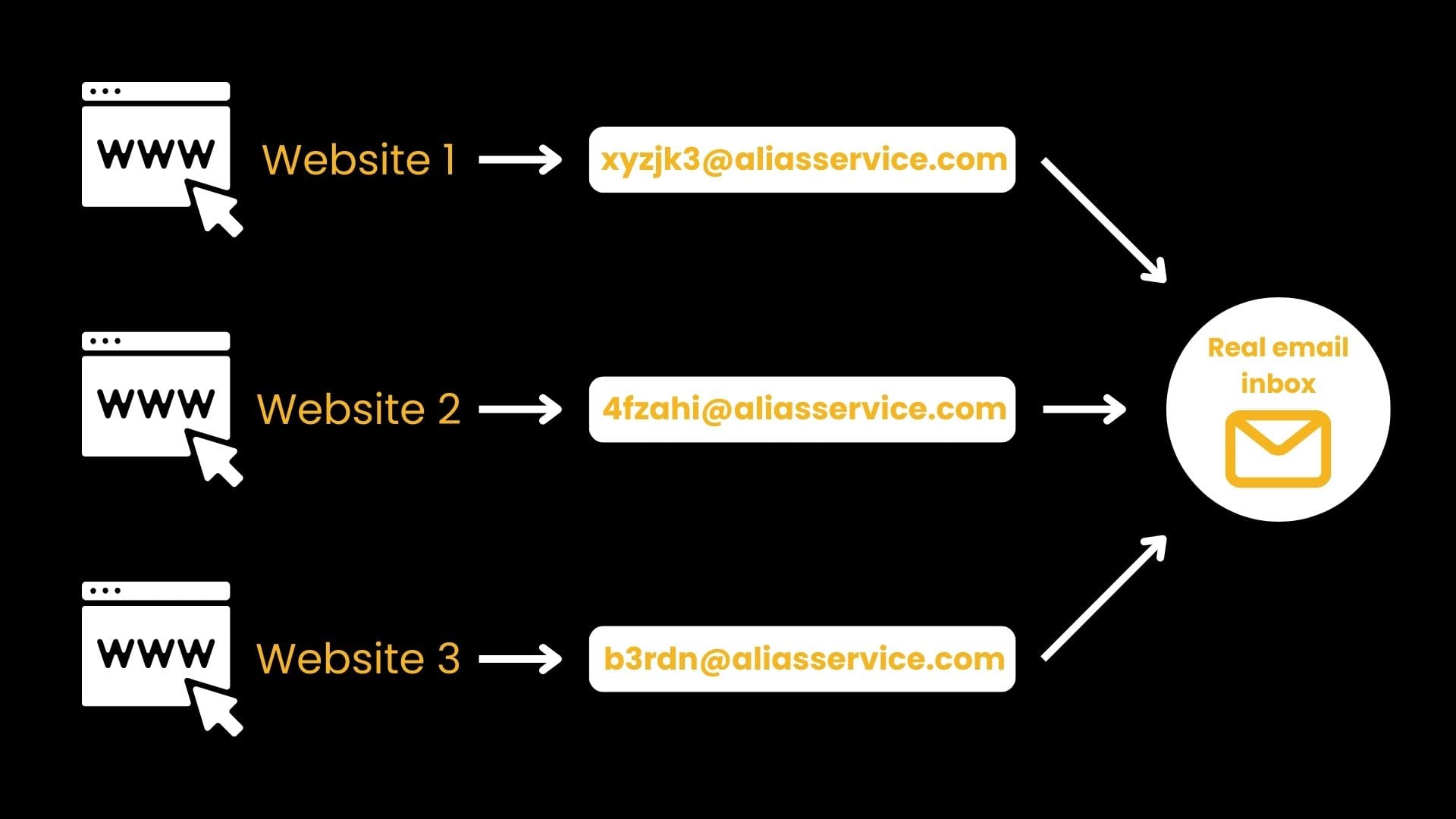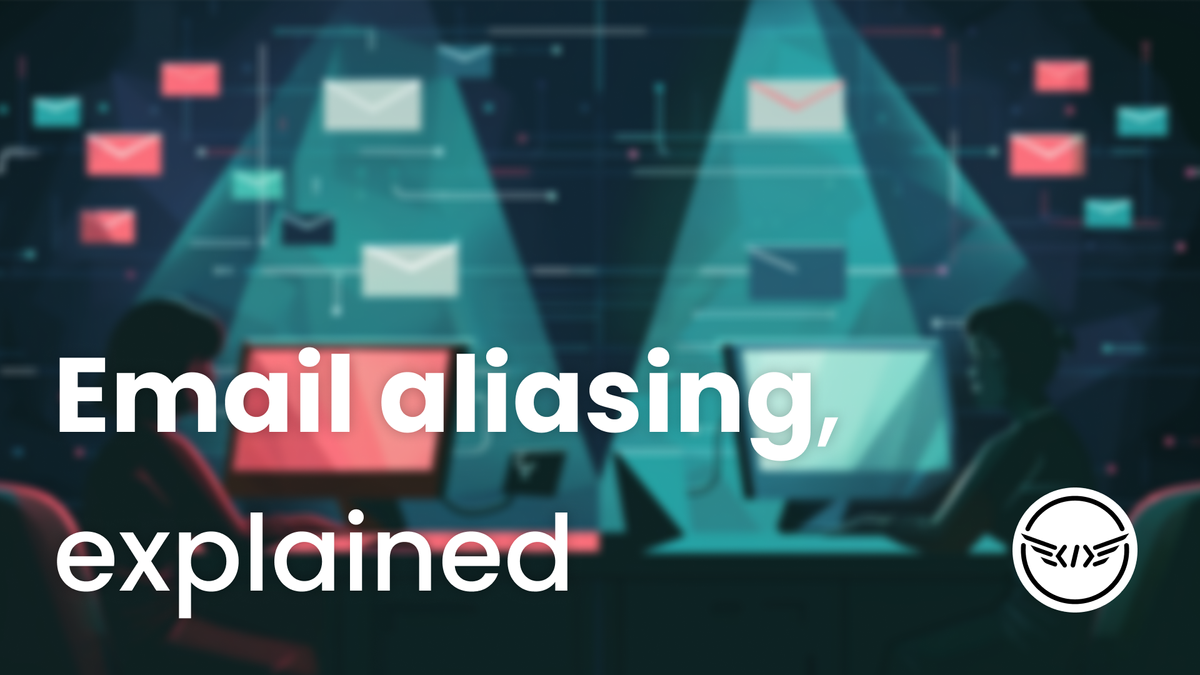Satoshi Nakamoto was keen on email aliasing when Bitcoin was in development.
As bitcoiners ourselves, there’s a lot we can learn from how Satoshi navigated the internet, and more importantly, why they were so keen on privacy tools like email aliases.
In today’s internet, spam, fraud, and other invasive pitfalls are everywhere. Simply clicking on the wrong link can mean you lose the Bitcoin on your hot wallet or give up your personal information to an anonymous rogue actor across the globe. Especially in the world of Bitcoin, the websites and platforms we use are hot-spots for criminals looking to catch you in a mistake.
It’s thus critically important that we adopt similar privacy standards for ourselves that cypherpunks like Satoshi did – especially if we’re socially active in the Bitcoin community. As adoption grows, so too will the number of bitcoiners getting targeted for their coins.
Email aliasing is one of many ways you can protect yourself from this targeting.
What is email aliasing?
Email aliasing is an essential practice for anyone who wants to enhance their online privacy.
An email alias is a unique identifier you can use in place of your real email address so that you can privately receive emails. It redirects emails from senders to your primary inbox without revealing your real email address, so it functions as an email forwarder, not as an independent mailbox.
Not only do email aliases help keep your identity safe, but they can also improve your efficiency and flow of information.
Let’s say you have one primary email address, but you use individual email aliases with three particular websites that you visit often. You can use multiple email aliases to route incoming emails to the same singular email address:

Imagine you have a basic email, John123@gmail.com, that you use for multiple different services, like Amazon, Netflix, your bank account, social media, etc. Now let’s say just one of these services experiences a data breach. Now that your email is compromised, the attacker can target you and link that email to all of your other accounts, giving them a much greater chance of breaching into one of them.
By using an email alias individually for these services instead, you cut the attacker off from learning about your other accounts. All of the information they steal would only relate to that specific singular alias, which you could then simply scrap and replace with a new one.
Why use an email alias?
Using an email alias naturally falls in line with the principles of good online privacy and security.
Instead of asking yourself why you should use an email alias, instead ask yourself, “Why should I have to disclose my real email?”
The way that the internet operates today, it’s commonplace to share way too much unnecessary private information to other companies. While companies often say it’s “for your safety” or for verification purposes, these data collection practices often end up harming people instead.
An email alias is one of many easy ways to take back the privacy that you have a right to when using the internet. You’ll avoid spam more easily and ensure that your actual email remains private to you and your email provider (or just you alone if you choose to self-host your email).
But beyond the first principles of privacy, email aliasing will also make your life easier:
- Even if the alias is compromised and somehow gets trapped in the endless flow of spam email, or you wish to simply cut communications ties from that alias, you can scrap the alias and start fresh with a new one without deleting your actual account.
- You’ll feel more organized since you have a choice of different channels to communicate with different parties.
- It will give you more confidence in your online experience since you can communicate with others without risking anyone tying your messages back to an account that may be linked to your identity.
This last point was probably particularly beneficial for Satoshi, who subjected themselves to immense scrutiny from criminals and governments alike by creating and posting about Bitcoin online.
Setting up your email alias
For a paid option, you can generate your own email alias using an open-source provider like SimpleLogin.io. Simplelogin respects user privacy, doesn’t collect ads or use trackers, and even enables you to self-host SimpleLogin on your own server if you want maximum privacy.
For free email alias options, try DuckDuckGo, FireFox Relay, or Addy.io.
You can also take advantage of the built-in email alias generators that come with popular private email services, such as:
- Proton Mail (free or paid)
- Note: Proton now owns SimpleLogin, and thus uses them for their email aliasing service.
- Tuta (free or paid)
- StartMail (paid)
All of these services accept Bitcoin as payment, and they all offer built-in email alias creators in case you don’t want to use a third party service like SimpleLogin.
Email aliasing is an essential practice for optimal online privacy, but if you’re using them with a privacy-invasive email like Gmail, that’s like installing a high-tech security system to your house, but then leaving all the doors unlocked so it’s easier for you to get in and out of the house.
Many people love the convenience of email platforms like Gmail, but if you’re here to enhance your privacy, then you’ll have to sacrifice some of that convenience.
After creating an alias using one of the platforms mentioned here (or another if it suits your needs), simply enter these aliases in place of email addresses when signing up for platforms, making online purchases, or while in communications with other parties.
Practical applications of email aliasing
In the mainstream world, you mainly see companies using multiple different email aliases that they use for customers to reach various departments of the company, but it’s not likely that your friends are sharing an alias with you when you’re trying to send something to them online.
As an individual, your needs likely aren’t the same as a large organization’s. So how can you use an email alias?
1. Reducing spam: By using unique email aliases for different services, you can identify which of them may be selling your information or sending unwanted emails. If one alias starts receiving spam, you can simply scrap and replace it without affecting other communications.
2. Testing/temporary sign ups: Whenever you sign up anywhere online, you’re entering your information into a database that can be hacked at any time, and are being hacked at an increasing rate. If you’re trying out a new website or want to create an account and explore gated content, using an email alias for these instances is a great way to keep yourself private during the process so that you don’t unnecessarily add your personal information to a list for the darkweb to exploit.
3. Social media signups: Whenever you sign up for social media, it’s always a great idea to use an email alias. In the event that a social media platform experiences a data leak – of which there have been many in history – your alias will nip the data leak in the bud and prevent the leaker from learning anything else.
4. Information organization: With an email alias, you can get ahead of hundreds of emails all piling into your one inbox. An email alias will help you sort through different messages and more easily find the email you’re looking for, as well as identify and filter out spam more easily. I’ll touch again on this below.
5. Professional communications: Perhaps you’re not a company, but have a responsibility to handle public interaction or front-facing support; You can use an email alias to manage and separate professional and personal communications.
6. Project development: You can use an email alias for testing email workflows, sign-ups, and other things within websites so that it not only keeps you private in the process but also conveniently compiles your findings into one section of your inbox for you to review.
Email alias organization
You can simply implement email aliases for enhanced privacy. But if you want to take full advantage of their organizational benefits, then it takes a bit more intention with how you structure your aliases.
With so many different aliases that you'll use over time, things can get cluttered fast. To mitigate this, you can implement sub aliases that make your filtering a bit more granular and easier to search.
For example, you could structure your aliases as:
- “category-companyname@aliasservice.com”
“Category” to the left of the dash can represent the general topic of the email, and “companyname” is for the specific entity you’re receiving mail from.
Let’s say I’m using addy.io for my email aliases, and I have a lot of traveling to do this year
Now let’s say that you want to book three different flights this year, and have to use multiple different services to buy your tickets, like Expedia, Skyscanner, or Kayak.
For each alias, if I was using addy.io, I could then structure them as:
- “travel-expedia@addy.io”
- “travel-skyscanner@addy.io”
- “travel-kayak@addy.io”
Meanwhile, the Bitcoin newsletter I’m subscribed could use the alias:
- “bitcoin-freedomtech@addy.io”
My 2024 taxes could be sorted under “finance” with:
- “finance-taxes-2024@addy.io”
When applying this framework to your aliases in conjunction with complementary private email service, your organization can become much easier.
For example, you could use Proton Mail’s custom folders and labels to categorize emails that arrive through different aliases. Just set up a filter to move all emails sent to your “bitcoin-freedomtech@addy.io” alias directly into the "Bitcoin" folder, or create a “Finance” folder that collects incoming emails from “finance-taxes-2024@addy.io”
You can go a step further and use more advanced filtering capabilities that create rules based on specific criteria, such as the sender/receiver alias or specific keywords in the title/body. This can function as a greater sort of “catch all” filter that will keep all your financial emails (or anything else) in one bunch, based on groupings of keywords you’d expect to find within those emails. And if you’re savvy with code, you can implement sieve filters to automate this filtering process within your inbox for you.
By strategically applying these features, you can maintain a high level of privacy while reducing friction elsewhere and make your organization simpler in the long run.
Your life will be so much easier down the road if you do this today before you start using many different aliases.
Keep in mind
Using an email alias doesn’t guarantee total privacy. Email service providers can still see where the alias came from and the email aliasing provider can still see emails they relay, so if you want total privacy, you need to either self host your email or anonymously set up an email address to then apply your alias on top of.
By setting up an account with one of the services mentioned above and paying anonymously with no-KYC Bitcoin, you can use an email alias and rest assured knowing that email service providers can’t use them to dox your identity. They could give up the email to authorities if subpoenaed or something similar, but if implemented properly, it would still protect your identity.
Don’t forget your other privacy tools
As bitcoiners, maintaining good online privacy doesn’t just mean good email hygiene. In fact, that matters very little if you leave the rest of your privacy foundation unchecked.
- Make sure that you’re using a privacy browser that complements the aliases and other efforts you take to keep your identity as hidden as possible, or use a VPN at the very least if you have to use a particular browser.
- Pay attention to the traces you leave on social media platforms, especially when talking about Bitcoin. These are the kinds of conversations that help criminals narrow down their target lists, so you don’t want to accidentally say too much and get your Bitcoin, identity, or something worse stolen.
- Bitcoin PayNyms work similarly to email aliases in that they provide an alias that masks Bitcoin addresses for you to receive payments with. The sender only sees a static PayNym address, but on the backend it’s generating new Bitcoin addresses for each payment, so the receive address is always unique.
Conclusion
Not only do email aliases keep you protected from phishing, spam, and other potential dangers, they make your online life easier too.
For any bitcoiners considering using an email alias, you won’t regret it. The hassle is minimal to set one up and well worth the privacy that it offers. Especially during a time when financial surveillance is at an all-time high, email aliasing is one of the small and easy measures you can take to better safeguard yourself.
Besides email aliasing, consider how else you’re potentially leaking private information online. Whether you're creating accounts, talking on social media, online shopping, or working with Bitcoin software: your privacy is quintessential to ensuring it can all happen without putting yourself at risk of theft or fraud.
Join the Conversation
If this post has sparked an idea or motivated you to get involved, there is no better next step then to join the conversation here at freedom.tech! Subscribers can jump straight into the comments below, or you can join our community SimpleX group:

If you have feedback for this post, have something you'd like to write about on freedom.tech, or simply want to get in touch, you can find all of our contact info here:



